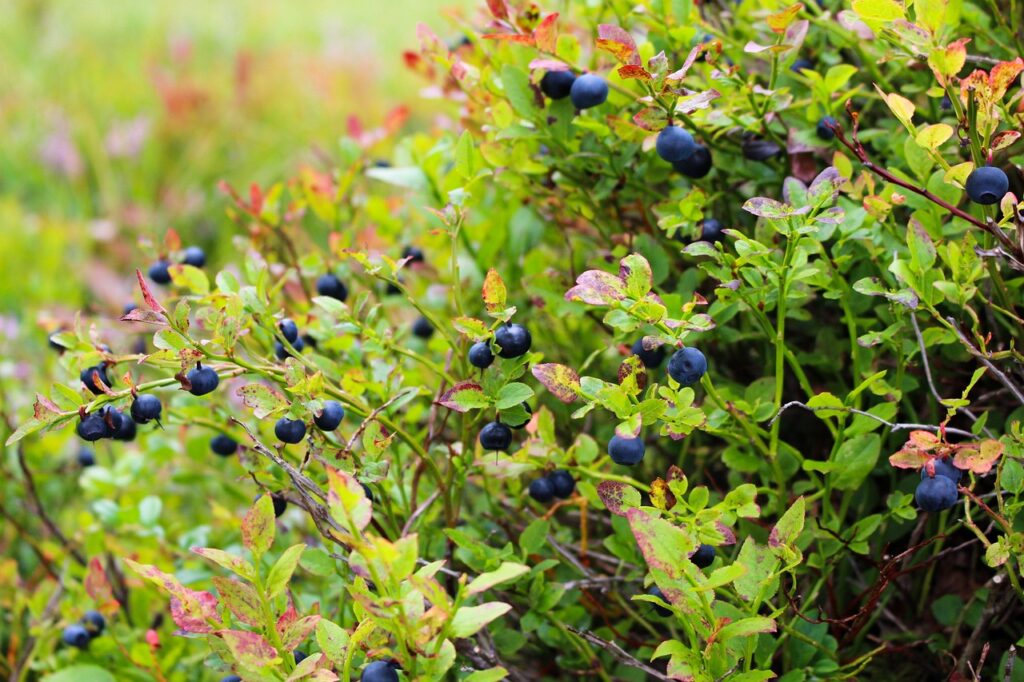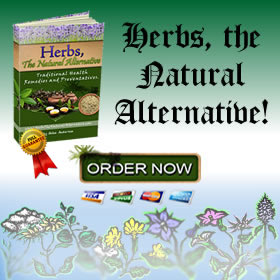Coriander Seeds: Unraveling The Digestive And Antioxidant Perks
In this article, you will discover the incredible digestive and antioxidant perks of coriander seeds. These tiny seeds, known for their distinct flavor and aroma, have been used for centuries in cuisines around the world. However, their benefits go beyond adding a tasty touch to your dishes. From promoting healthy digestion to fighting free radicals, coriander seeds pack a powerful punch when it comes to improving your overall well-being. So, get ready to explore the captivating world of coriander seeds and unlock the secrets to a healthier you.

What are Coriander Seeds?
Coriander seeds, also known as cilantro seeds or dhaniya seeds, are the dried fruits of the coriander plant (Coriandrum sativum). Although coriander leaves are widely used as a culinary herb in many cuisines, the seeds are equally valued for their unique flavor and numerous health benefits. These small, round seeds have a warm, citrusy flavor with hints of both sweetness and earthiness. They are commonly used as a spice and a key ingredient in various dishes around the world.
Origins of Coriander Seeds
Coriander seeds have a rich history dating back thousands of years. Originating in the Mediterranean and Western Asia, they have been cultivated and used not only for culinary purposes but also for their medicinal properties. Ancient Egyptians used coriander seeds in their embalming processes, while the Romans introduced them to Europe. Today, coriander seeds are widely grown and can be found in many countries, including India, Morocco, Russia, and Mexico.
Physical Description
Coriander seeds are small and round, measuring approximately 3-5 mm in diameter. They have a light brown color and a slightly ridged texture. When crushed, their aromatic scent is released, adding a delightful fragrance to dishes. The seeds are typically harvested when they turn yellowish-brown and then dried before being used in cooking or ground into a powder.
Common Culinary Uses
Coriander seeds are a staple ingredient in many cuisines and are appreciated for their versatility. They can be used whole or ground to add depth and flavor to a wide range of dishes. In Indian cuisine, coriander seeds are often toasted and ground to form the base for many curry powders, while in Mexican cuisine, they are a vital component of salsa and chili powders. The seeds’ unique flavor enhances soups, stews, marinades, and even baked goods, providing a delightful twist to various recipes.
Nutritional Profile of Coriander Seeds
Coriander seeds not only add a burst of flavor to dishes but also offer several nutritional benefits. They are rich in macronutrients, micronutrients, and phytochemicals.
Macronutrients
Coriander seeds are a good source of dietary fiber, providing approximately 42 grams per 100 grams. Fiber is essential for maintaining a healthy digestive system and promoting regular bowel movements. Additionally, coriander seeds contain small amounts of fat and protein, making them a well-rounded addition to a balanced diet.
Micronutrients
Coriander seeds are packed with essential micronutrients, including iron, magnesium, and manganese. Iron is crucial for carrying oxygen to cells and preventing anemia, while magnesium plays a role in bone health and energy production. Manganese acts as an antioxidant, protecting cells against damage caused by harmful molecules called free radicals.
Phytochemicals
Phytochemicals are plant compounds that have beneficial effects on health. Coriander seeds contain phytochemicals such as flavonoids, phenolic compounds, and terpenoids. These compounds possess antioxidant and anti-inflammatory properties, which contribute to the numerous health benefits associated with coriander seed consumption.
Digestive Benefits of Coriander Seeds
Relief from Digestive Disorders
Coriander seeds have long been appreciated for their digestive benefits. They contain essential oils like linalool and cineole, which can help alleviate symptoms of indigestion, bloating, and discomfort. These oils also possess carminative properties, which means they can help expel gas from the intestines, providing relief from gas and abdominal pain.
Antimicrobial Properties
Coriander seeds exhibit antimicrobial activity, which can help protect the digestive system from harmful bacteria and parasites. The antimicrobial properties of coriander seeds can aid in maintaining a healthy balance of gut flora and reduce the risk of gastrointestinal infections.
Promotes Gut Health
The dietary fiber found in coriander seeds plays a vital role in maintaining optimal gut health. Fiber acts as a prebiotic, providing nourishment for beneficial gut bacteria. By promoting the growth of these bacteria, coriander seeds support a healthy gut microbiome, which is essential for digestion and overall well-being.
Antioxidant Properties of Coriander Seeds
Phytochemicals and Antioxidants
Coriander seeds are rich in phytochemicals that exhibit potent antioxidant properties. Antioxidants help protect the body against oxidative stress, which occurs when there is an imbalance of free radicals and antioxidants. By neutralizing free radicals, coriander seeds can help prevent cellular damage and reduce the risk of chronic diseases.
Neutralizing Free Radicals
Free radicals are unstable molecules that can cause damage to cells and DNA. The antioxidants found in coriander seeds, such as flavonoids and phenolic compounds, help neutralize these free radicals, preventing oxidative damage and reducing the risk of conditions like cardiovascular disease, cancer, and premature aging.
Reducing Oxidative Stress
Oxidative stress is linked to numerous diseases and accelerated aging. The antioxidants in coriander seeds help reduce oxidative stress by protecting cells from damage and promoting cellular repair mechanisms. Regular consumption of coriander seeds may contribute to overall health and well-being by combating the effects of oxidative stress.
Coriander Seeds for Weight Loss
Enhancing Metabolism
Coriander seeds have metabolism-boosting properties that can aid in weight loss. They contain essential oils that stimulate the digestive system, increasing the metabolic rate and improving the breakdown of fats and carbohydrates. This enhanced metabolism can contribute to weight management and support healthy weight loss goals.
Appetite Suppressant
Coriander seeds have been traditionally used as an appetite suppressant. The unique flavor and aroma of the seeds can help curb cravings and reduce the desire to snack between meals. By incorporating coriander seeds into your diet, you may experience improved portion control and reduced calorie intake, facilitating weight loss.
Detoxification
Coriander seeds have detoxifying properties that assist in weight loss efforts. They are known to stimulate the liver, aiding in the detoxification process and promoting the elimination of toxins from the body. By supporting liver function, coriander seeds contribute to overall wellness and can help optimize weight loss efforts.
Managing Blood Sugar with Coriander Seeds
Regulating Insulin Levels
Coriander seeds have been shown to have hypoglycemic properties, meaning they can help regulate blood sugar levels. The compounds present in coriander seeds may enhance insulin secretion and increase insulin sensitivity, improving glucose control in individuals with diabetes or those at risk of developing the condition.
Improving Glucose Tolerance
Consuming coriander seeds may improve glucose tolerance, allowing the body to effectively process and utilize glucose. This can help prevent blood sugar spikes and crashes, reducing the risk of insulin resistance and diabetes. Including coriander seeds as part of a balanced diet may support better blood sugar management.
Reducing Glycemic Load
The high fiber content of coriander seeds contributes to their ability to reduce the glycemic load of a meal. Fiber slows down the absorption of sugars into the bloodstream, preventing rapid spikes in blood glucose levels. By reducing the glycemic load, coriander seeds can help regulate blood sugar levels and promote stable energy levels.
Coriander Seeds for Heart Health
Cholesterol Management
Coriander seeds have been found to have cholesterol-lowering properties. They contain compounds that can help lower levels of LDL (bad) cholesterol while increasing HDL (good) cholesterol. By maintaining a healthy cholesterol profile, coriander seeds support heart health and reduce the risk of cardiovascular diseases.
Blood Pressure Regulation
Coriander seeds have been traditionally used to help regulate blood pressure. They possess hypotensive properties, which can help lower high blood pressure levels. The seeds contain compounds that promote the relaxation of blood vessels, allowing for smoother blood flow and reducing strain on the cardiovascular system.
Reducing Inflammation
Inflammation is a key factor in the development of heart disease. Coriander seeds contain anti-inflammatory compounds that help reduce inflammation throughout the body, including the cardiovascular system. By reducing inflammation, coriander seeds support heart health and may lower the risk of heart-related conditions.
Coriander Seeds for Skin Health
Treating Skin Disorders
Coriander seeds have antimicrobial and anti-inflammatory properties that make them beneficial for treating various skin disorders. Their natural compounds can help reduce redness, swelling, and irritation associated with conditions like acne, eczema, and dermatitis. Additionally, coriander seeds possess soothing properties that can alleviate discomfort and promote healing.
Anti-aging Benefits
Coriander seeds are rich in antioxidants that help combat the signs of aging. The antioxidants neutralize free radicals and prevent damage caused by environmental factors such as pollution and UV radiation. By incorporating coriander seeds into your skincare routine, you can support youthful-looking skin and reduce the appearance of wrinkles and fine lines.
Skin Detoxification
The detoxifying properties of coriander seeds extend to the skin. They help remove toxins and impurities from the skin, promoting a healthy and radiant complexion. Coriander seeds can be used in face masks, scrubs, or toners to assist in the detoxification process and leave your skin feeling refreshed and rejuvenated.
Coriander Seeds for Eye Health
Rich in Vitamin A
Coriander seeds are an excellent source of vitamin A, a nutrient that is essential for maintaining healthy eyesight. Vitamin A plays a vital role in the production of rhodopsin, a pigment found in the retina that is responsible for low-light and color vision. Consuming coriander seeds can support overall eye health and reduce the risk of age-related vision problems.
Prevention of Macular Degeneration
The antioxidants present in coriander seeds, such as lutein and zeaxanthin, protect the eyes from age-related macular degeneration (AMD). These compounds filter harmful blue light and reduce oxidative damage to the macula, the central part of the retina responsible for sharp vision. By including coriander seeds in your diet, you can help prevent vision loss associated with AMD.
Reducing Eye-related Disorders
Coriander seeds have been used in traditional medicine to alleviate eye-related disorders such as conjunctivitis and dry eyes. The seeds’ anti-inflammatory and soothing properties can help reduce redness, itching, and discomfort in the eyes. Additionally, the nutrients in coriander seeds nourish and protect the delicate tissues of the eyes, promoting overall eye health.
Incorporating Coriander Seeds into Your Diet
Recipes and Preparation Methods
Coriander seeds can be used in a variety of culinary creations to enhance flavor and provide health benefits. They can be toasted and ground to make a homemade spice blend or added whole to soups, stews, curries, and marinades for a burst of flavor. Roasting coriander seeds releases their essential oils, intensifying their aroma and taste. You can also crush them and sprinkle them over salads, roasted vegetables, or stir-fries to add an extra layer of complexity to your dishes.
Dosage and Usage Recommendations
When using coriander seeds as a spice or for their health benefits, it is essential to use them in moderation. A typical dosage is around 1-2 teaspoons per day, depending on individual preferences and recipes. However, it is always advisable to consult with a healthcare professional before incorporating coriander seeds into your diet, especially if you have any underlying health conditions or are taking medications.
Considerations for Storage
To maximize the shelf life and preserve the flavor of coriander seeds, proper storage is crucial. It is best to store them in an airtight container in a cool, dark place, such as a pantry or a spice cabinet. Whole coriander seeds can stay fresh for up to a year, while ground coriander seeds have a shorter shelf life and should be used within six months for optimal flavor.
In conclusion, coriander seeds are not just a flavorful addition to your meals; they also offer a wide array of health benefits. From promoting digestive health and supporting weight loss to protecting the heart, skin, and eyes, coriander seeds are a powerhouse of nutrition. By incorporating these versatile seeds into your diet, you can enjoy their many perks while delighting your taste buds with their unique and aromatic flavor. So, go ahead and explore the world of coriander seeds, unraveling their digestive and antioxidant wonders.

